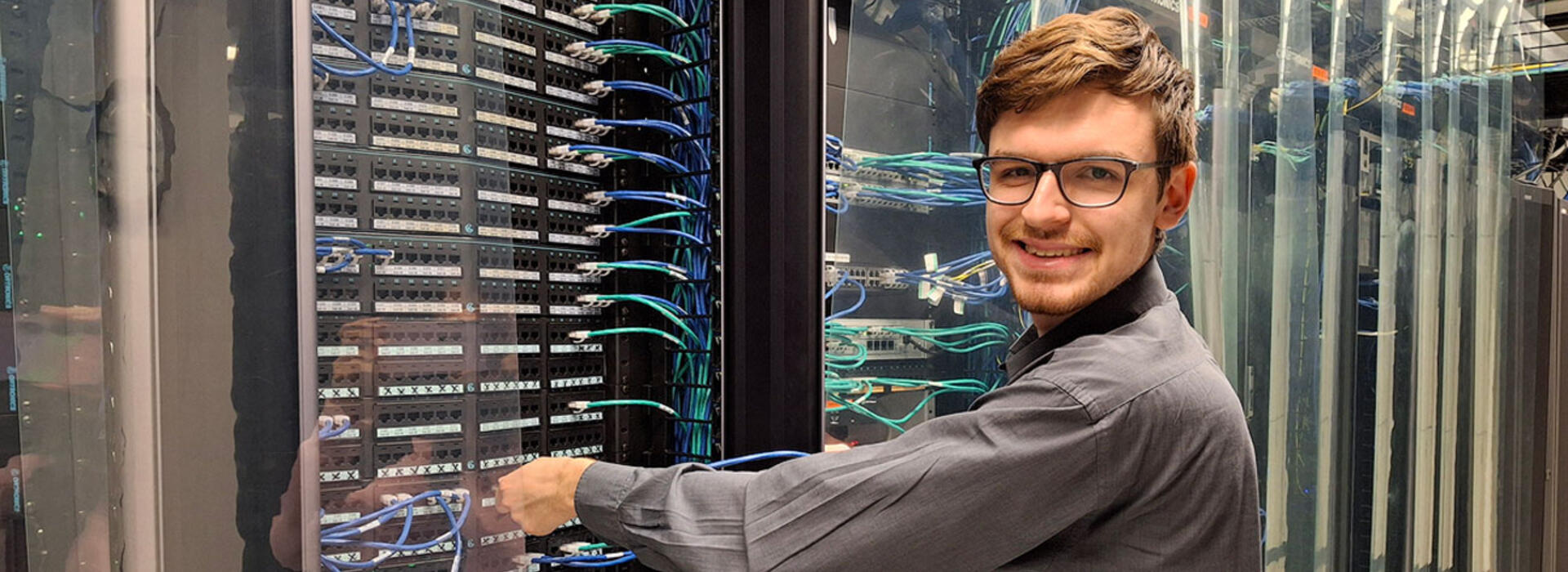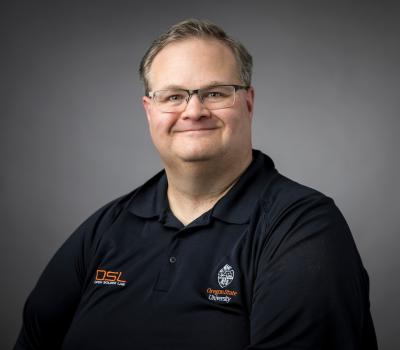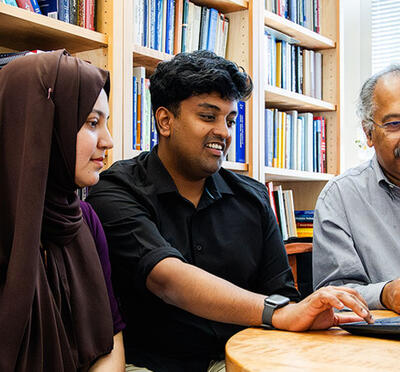Oregon State University’s Open Source Lab, a key contributor to global open-source projects and a career launchpad for students, has resolved a recent funding crisis and is moving forward with plans for long-term stability.
The lab has supported major projects such as Mozilla Firefox, the Linux Foundation, and the Apache Software Foundation, while continuing to host key platforms like Drupal. Its infrastructure and technical expertise have helped open-source projects grow from early development into globally recognized technologies.
“For the last two decades, we’ve been a cornerstone in the open-source world,” said Lance Albertson, OSL director and recent recipient of the Software Freedom Conservancy’s first Distinguished Service Award. “At our core, we’re a hosting facility, but what makes us unique is being a student-powered organization. Our students get an unbelievable amount of hands-on experience.”
That experience has launched alumni into influential roles. Alex Polvi, one of the lab’s first student employees, founded Cloudkick, which was acquired by Rackspace in 2010. He later co-founded CoreOS with fellow OSL alumnus Brandon Philips. CoreOS became a leader in container technology and was acquired by Red Hat in 2018. Other alumni now work at Google, Amazon, Intel, and Red Hat.
A coalition of support averts a funding crisis
The lab faced uncertainty due to an unpredictable year-to-year funding model and changes in university budget oversight.
“Our challenges were really starting to impact our ability to serve students and host projects,” Albertson said.
The crisis gained attention after coverage on Hacker News and The Register. A major anonymous corporate donation, contributions from Red Hat, Microsoft, and HPE, and an expanded IBM grant helped stabilize the lab. Individual donors and potential grant organizations also stepped in.
“It really came together with a broad and humbling coalition of support, and we’re incredibly grateful,” Albertson said.
Building a stronger Open Source Lab
Albertson says OSL plans a “sustainable overhaul” that includes infrastructure modernization and financial stability.
The recent influx of funds will cover current staff and student employee salaries, hardware, a move to a new data center, and outreach at industry conferences. “We’re not just fixing the old lab,” Albertson said. “We’re building the next generation of OSL — architecturally, operationally and financially.”
OSL continues to power a diverse range of open-source communities by hosting major projects like Debian, Fedora, Drupal, Jenkins, and the Gentoo Linux distributions. It also supports essential tools and platforms such as Cinc, OpenVox, PostgreSQL, MariaDB, and OpenStreetMap, reinforcing its role as a cornerstone of the global open-source ecosystem.
In addition to advancing open-source software, OSL projects are important for preparing students for careers.
“When companies get a student of ours, they’re years ahead,” Albertson said. “We want to make sure that continues for the next generation.”


